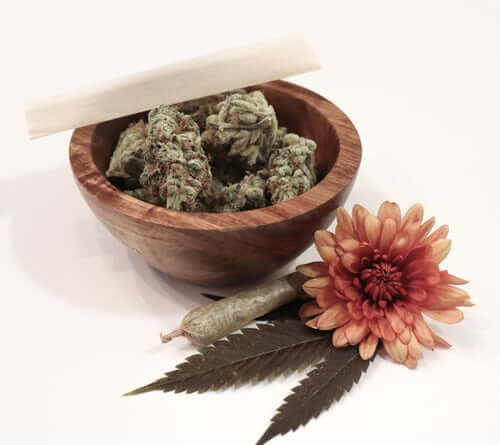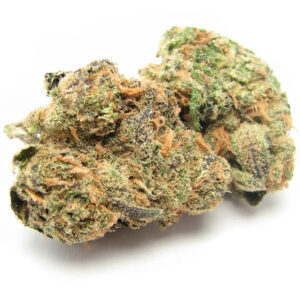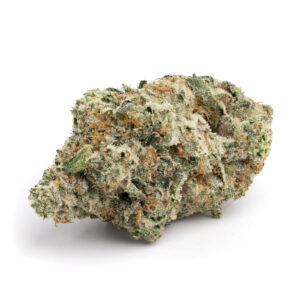Cannabis users who buy medical marijuana online in Canada are familiar with the plant’s appetite-increasing properties. It’s hard to want to eat when you’re in pain or nauseous, and cannabis helps with both those conditions. And there are few recreational users who haven’t experienced the munchies at one point or another.
So the concept of cannabis being a potential weight loss aid is foreign to most of us. But a recent University of Michigan study of 33,000 people conducted over the course of three years and published in 2019 found that both new and long-time cannabis users are 5% less likely to be overweight or obese than non-users, and that cannabis users were more likely to not only be at a healthy weight but were likely to stay at that weight.
The results of the Michigan study confirm the findings of two other studies, one done in 2010 and the other in 2011.
In terms of scientific studies and clinical trials, we’re still way behind in our quantifiable knowledge of all the properties of medical marijuana. With so many cannabis strains available, each with different effects and properties, it’s difficult to create the kind of clinical trials performed on other drugs.
It’s not just a matter of different tastes and smells, the THC:CBD ratio, terpenes, and whether the smoke is smooth or harsh. There’s another compound produced in tiny quantities in weed. It’s called tetrahydrocannabivarin or THCV, and it seems to have several interesting effects.
THCV or Tetrahydrocannabivarin and Its Properties
THCV is a fascinating molecule with some unique properties:
- The more THCV present in cannabis, the faster you feel the effects of THC.
- The effects of THC tend to wear off faster when higher quantities of THVC are present — which makes sense if you’ve started to feel the effects sooner.
- THCV seems to act as an appetite suppressant.
Unfortunately it’s a hard compound to extract as it’s produced in very small quantities. A UK firm hopes to create a THCV drug that can be used in concert with more traditional Type II diabetes medications to help patients lose weight and better manage their blood glucose levels. And a Florida-based company claims to have been able to create commercial quantities of the cannabinoid for further study.
THCV seems to provide mood elevation without loss of focus and is also being looked at for its potential to increase bone density, prevent anxiety attacks and counter some of the effects of Parkinson’s Disease.
Cannabis Strains with High THCV Levels
Among the cannabis strains relatively high in THCV are Durban Poison, Doug’s Varin, Dutch Treat, Girl Scout Cookies, and Pineapple Purps.
Durban Poison was originally a South African sativa that smells and tastes like licorice. Its THC levels are in the mid-range (14-19%) and its predominant terpenes are terpinolene, myrcene, and ocimene.
A rare strain that originated in California, Doug’s Varin was created in a successful attempt to craft a sativa that was high in THCV. Its genetic origins are cloudy, although it’s thought to be related to Harlequin. It’s also high in THC, with levels ranging from 19-24%.
Dutch Treat may have originated from a grower on Vancouver Island, but like many high-THCV strains, its provenance isn’t clear. It quickly became popular in Amsterdam coffee shops, however. It’s an indica-heavy hybrid (80:20) with the same terpenes as Durban Poison and similar THC levels.
Pineapple Purps (or Purple Pineapple) is another sativa-dominant plant that’s hard to find and high in THCV. Its origins aren’t clear, but some sources consider it a blend of Pineapple, Skunk #1, and Cheese.
Among the easy-to-find strains that may suppress appetite, Girl Scout Cookies or GSC, with its caryophyllene, limonene, and humulene terpenes, is one of the few high-THCV plants whose origins are known. It’s a hybrid cross between OG Kush and Durban Poison.
The Sleep-Weight Loss Connection
While we’re waiting for the science to catch up and gathering our own anecdotal evidence about whether strains that hit fast but fade quickly also act as appetite suppressants, researchers are finally making progress in the study of obesity and are no longer wedded exclusively to the rigid food intake/exercise output formula to determine why we gain and how we lose weight.
In the last decade or so, obesity researchers have made strides in recognizing the complexity of what causes weight gain. First there was the discovery that severely calorie-restricted diets followed long term can activate starvation mode. As our bodies become more efficient at using the calories we ingest, we stop losing weight.
Perhaps more important, the connection between inadequate sleep and weight gain or retention is becoming more and more clear. In a study published in the Annals of Internal Medicine, dieting participants who got less than seven hours’ sleep per night lost only half as much weight from fat as those who got more sleep. They also felt hungrier and had less energy due to sleep deprivation, which impeded both weight loss and the ability to exercise.
Other studies indicate lack of sleep negatively affects the decision-making and impulse control areas of the brain, located in its frontal lobe. Insomnia has also been shown to increase late-night snacking and poor food choices. The sleep-deprived tend to pick high fat, high carb midnight snacks far more often than those who get eight or more hours of sleep per night.
Medical Marijuana, Sleep, and Weight Loss
While more research is needed on precisely how medical marijuana can help you get a better night’s sleep, it’s being widely prescribed for those with insomnia — both those who fall asleep easily but awaken long before they’ve had enough sleep and those who toss and turn for hours and then oversleep to compensate.
CBD, THC, and cannabinol or CBN, one of the lesser known cannabinoids, have all been shown to affect the ability to fall — and stay — asleep. Terpenes in cannabis that have so far been shown to help alleviate insomnia include myrcene, caryophyllene, limonene, terpineol, and linalool.
Linalool, the lavender-scented terpene, is particularly interesting because it increases the body’s production of adenosine, a sedating hormone that helps us fall asleep. High linalool strains include Lavender, LA Confidential, and Amnesia Haze, while Gorilla Glue #4, Hindu Kush, and
Berry White have high levels of limonene.
While we wait for research that definitively explains how we can use medical marijuana to help us lose weight and sleep better, one thing is clear: there’s nothing to be gained (other than pounds or kilos) from being sleep deprived. Talk to your medical practitioner about how you can use medical marijuana as another tool in your journey to better health.






